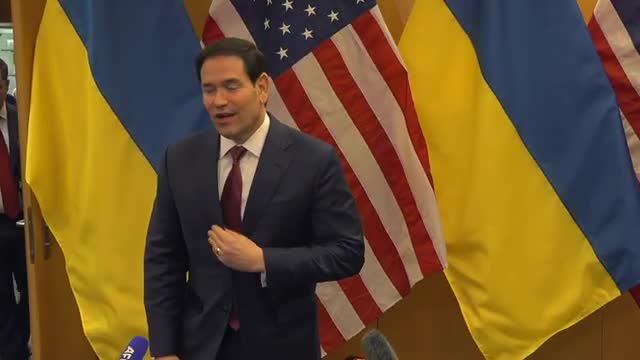Negotiators report "substantial progress" in Ukraine talks but say a few delicate issues remain
Get AI-powered insights, summaries, and transcripts
Subscribe
Summary
An unnamed participant said negotiators narrowed most open points in a living "foundational document," calling the day "the most productive" in months while warning remaining issues need higher-level consultation and presidential approval.
Speaker 1 (unidentified participant) said negotiators made "a tremendous amount of progress" today in talks to narrow a living "foundational document" that has evolved over three weeks of negotiations. "We had a very good day," the participant said, adding that roughly 26–28 points had been pared down and much of the remaining work concerns language, semantics or matters that require higher-level decisions.
The speaker said some items that implicate the European Union or NATO were placed on a separate track after briefings with national security advisers from several countries, while the negotiating teams focused on bilateral matters. "We sort of really focused on the ones that were bilateral in nature for the most part," the speaker said, and added that technical teams would continue work over the next 24 hours to refine outstanding technical items.
The participant cautioned that any final agreement would still need to be agreed upon by the presidents and that some remaining issues were "delicate" and not yet resolved. He described the drafting process as iterative: written proposals are adjusted in response to input and counteroffers and should not be treated as final until formally agreed.
On the Russian role, the speaker said the Russian position had been communicated to U.S. negotiators via written and verbal submissions at the US Department of State and reiterated that the Russian side would also have to agree to any terms reached with Ukraine. Asked about timing, the speaker said negotiators want to finish "as soon as possible," noting that delays risk more deaths and destruction and expressing optimism that an agreement could be reached in a "very reasonable period of time."
The next procedural step is continued technical work and high-level consultations; the speaker said some items will require additional consultation before being finalized and that negotiators planned to keep working.
